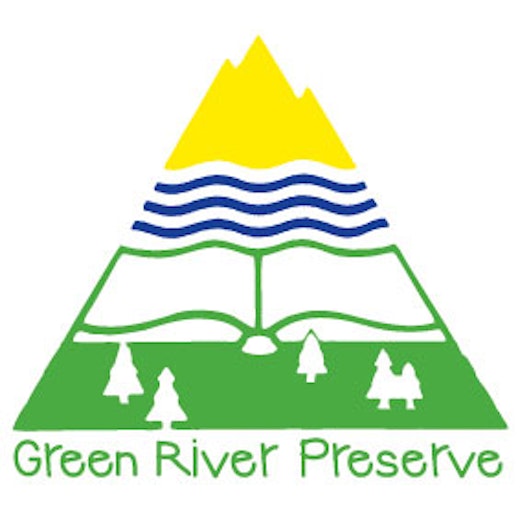
The Magic of Mentor Hikes
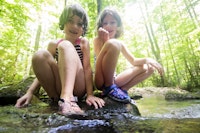
Today marks the third full day of GRP’s opening session, and it has been a full day indeed. This morning, campers loaded the extravagantly painted buses in the back field, where they sang with exuberance camp classics such as “Boom Chicka Boom” and the Disco song, before they found themselves deposited at a number of different trailheads with rainjackets and water bottles in tow.
These campers were going on their daily Mentor Hikes—a GRP specialty, centered around exploring and discovering the natural world around us, tasting plants, descending into caves, playing in waterfalls, and otherwise adventuring with a Mentor around the Preserve—which last the majority of the morning at GRP. On these hikes, campers often have the opportunity to interact with the natural world in ways they cannot at home. Mentors help them identify and subsequently eat some of the flora and fauna found along the trails, guide them into creeks, and allow that supreme form of exploration which ends with muddy shoes, dirty clothes, and an expanded perspective.
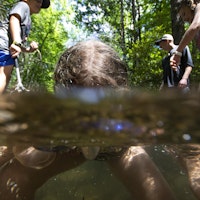
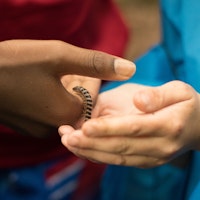
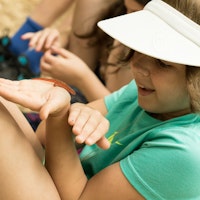
These hikes are central to GRP’s mission in myriad ways: they, of course, cultivate respect and reverence for the natural world which, for many children, can feel distant or inscrutable from home. They provide opportunities for in-the-field learning. But perhaps the defining element of these hikes is the manner in which they might reinforce our understanding of the interconnectedness of things: the wildlife on the Preserve exists in a fragile and sensitive state. Changes to the environment which we might see as minor can have major repercussions on the ecological systems which surround us, and, in some cases, they can render this landscape irrevocably different.
This lesson, which frequently arises during our morning forays into the woods, applies equally as powerfully to the worlds in which we live at home. Each of us holds tremendous power to shape other lives, and each of us occupies an essential and critical space in our own “ecological systems” at home. Just as the plants and animals of these western North Carolina mountains are intimately connected, so, too, are we. And learning to respect and wield the power we each hold, to learn that we matter and that we are capable of enacting tremendous change, both environmentally and interpersonally, is a lesson we hope each camper might take home with them.
Story by Katherine Poore
